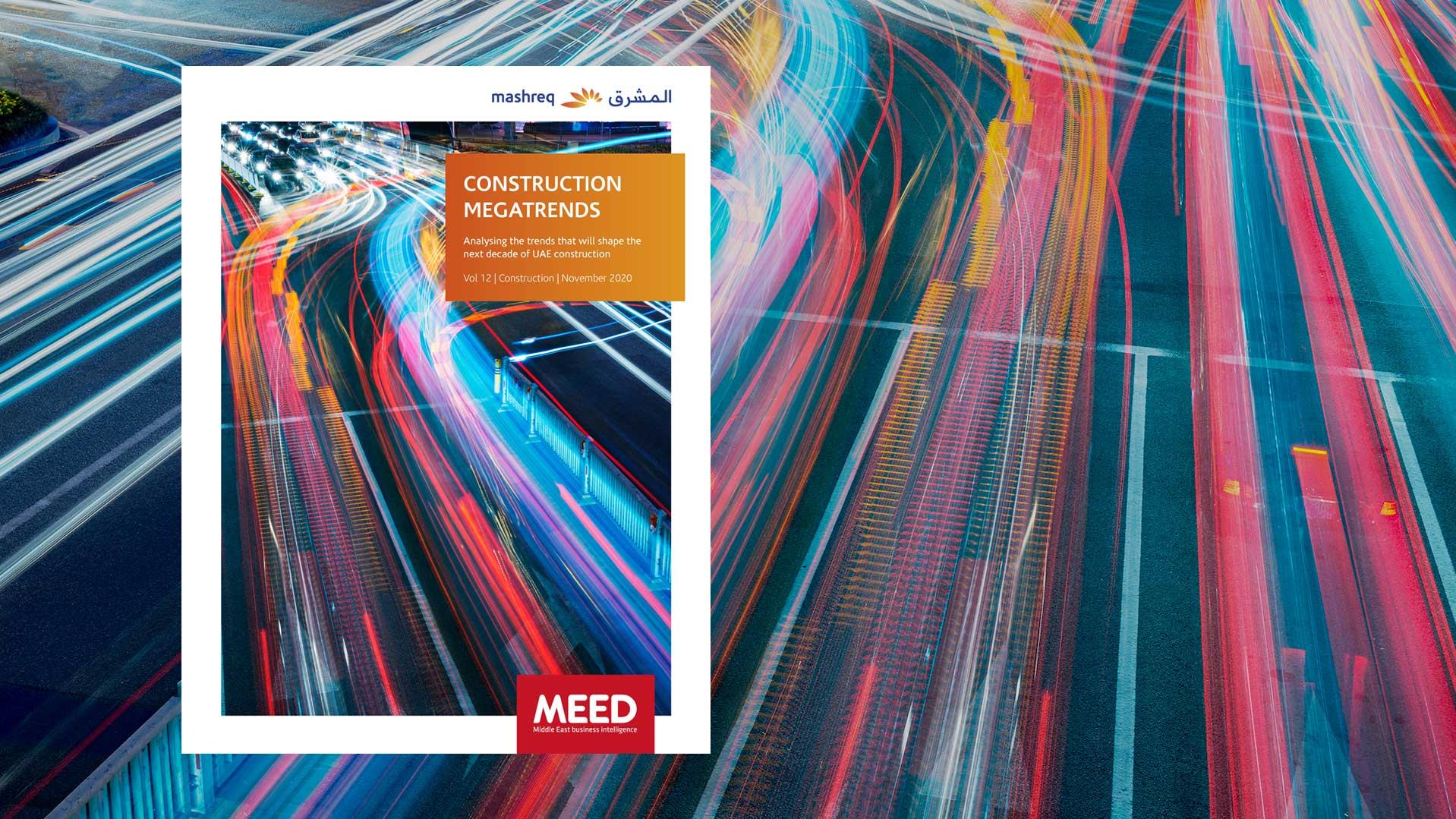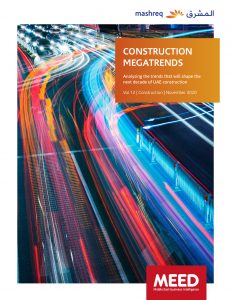Construction Megatrends

Construction companies in the region must become more agile in their approach to business development
The Covid-19 pandemic is having a deep impact on the region’s projects market and its legacy will shape the Middle East construction industry for years to come.
Hit by a slump in oil revenues and the closure of the international travel markets, government focus in 2020 shifted away from long-term investment projects to short-term economic support and healthcare provision.
One consequence is a steep hike in government deficits and national debt. And while stimulus spending and monetary easing will support some project activity, the inevitable legacy of the pandemic on the construction industry will be a prolonged extension of the tight fiscal controls that have restricted the region’s projects market since 2016.
Private sector project developers face an even sharper shock. Lacking the financial reserves of national governments, the collapse of the travel and tourism sector and the slowdown in demand for property has starved the market of liquidity.
As a result, many private real estate developments are delayed until conditions improve.They also are being downscaled, or even cancelled.
The biggest challenge facing construction companies in the UAE in the coming years will be finding new business opportunities. And devising strategies to help them win work.
Public sector project sponsors will increasingly seek alternative procurement models and funding mechanisms to deliver key projects. This will see a rise in the use of public private partnerships (PPP) on an increasing diversity of projects, and will provide long term opportunities for anyone able to bring a combination of finance and technical capability to the table.
Project owners and operators will demand higher levels of performance from their assets. This means maximising the capacity of the assets to deliver revenues, while reducing operation and maintenance costs. As a result, construction companies will see a rise in the development of smart buildings and infrastructure, that offer real-time tracking of asset performance and increased flexibility of space.
The decarbonisation of projects, both in construction and operation, will be an increasingly significant factor in shaping projects as the global drive to limit the effects of climate change becomes increasingly focused on hitting its 2050 targets. Projects will be required to minimise their carbon footprint and contractors and suppliers will be assessed by their contribution to these targets.
UAE construction is at a turning point. The drivers of projects in the past have changed, and many traditional industry practices are unsustainable. To succeed in the new era, construction companies must become more agile in their approach to how they do business and business development. They must be open to working in new sectors and markets, while at the same time, they must become leaner operationally, aggressively lowering their costs while increasing productivity levels.

CONSTRUCTION MEGATRENDS is the 12th report from the MEED Mashreq Construction Partnership and it analyses the trends that will shape the next decade of UAE construction.


